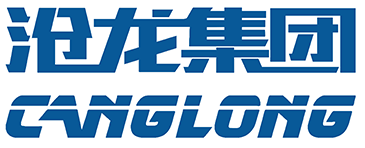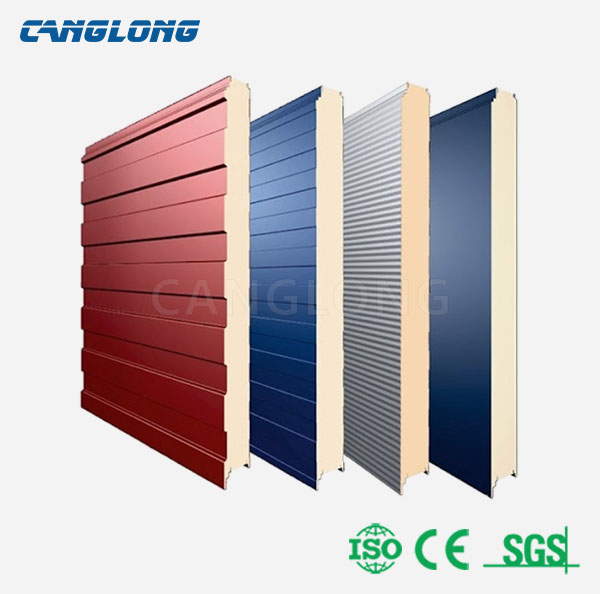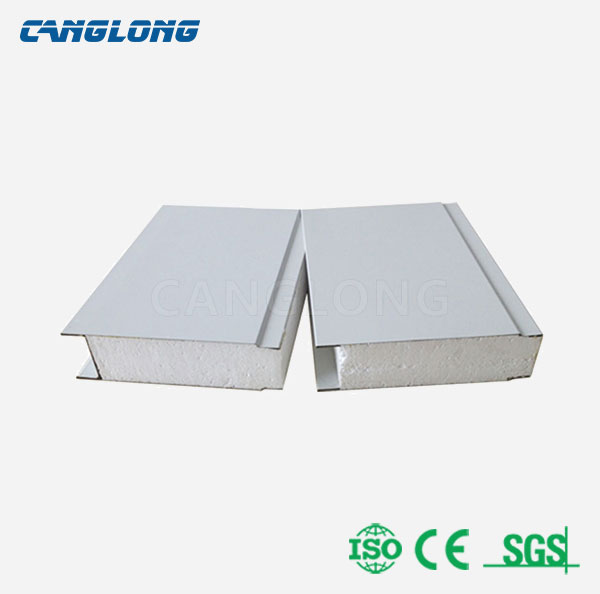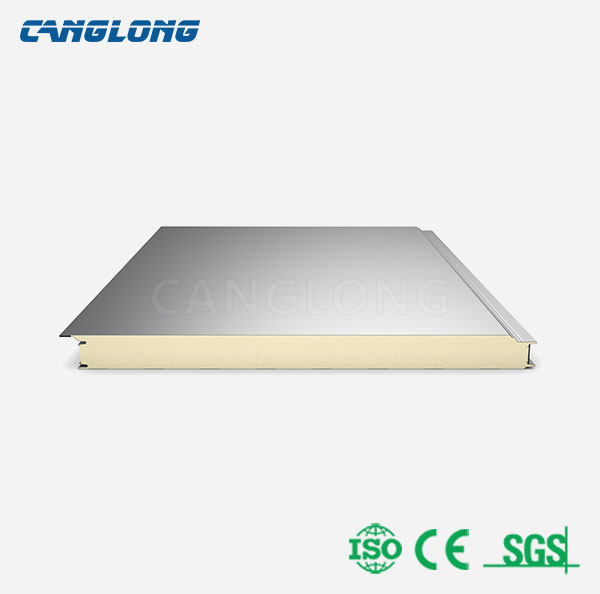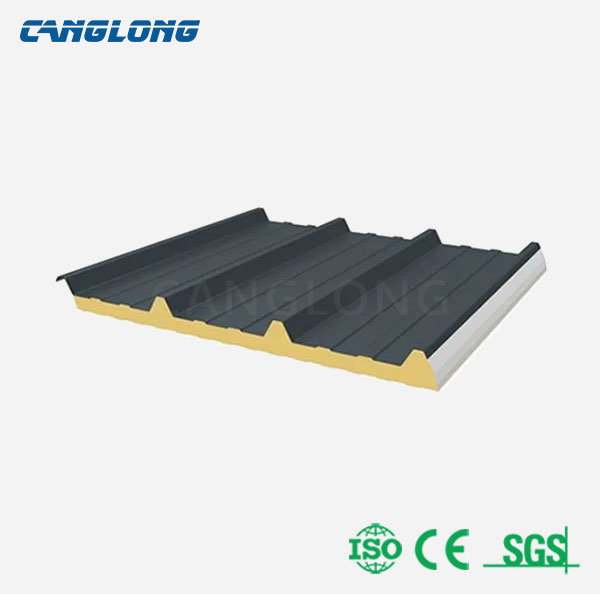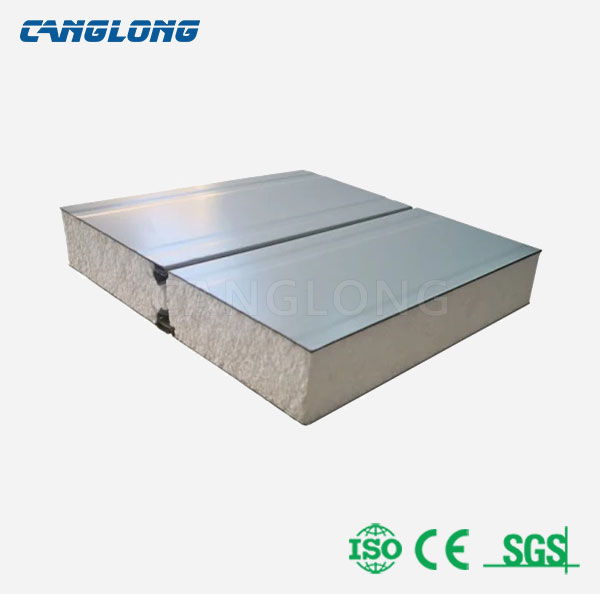
Expanded Polystyrene Panels
- Effective Width: 950/1150mm
- Metal Sheet Thickness: 0.2mm to 0.8mm
- Coating: PE/HDP/PVDF/SMF
- Plating: Hot-galvanize/Aluminium/Stainless
- Color of Steel Plate: White/Offwhite/Blue or Customized
- Core Material: Polystyrene (EPS)
- Core Thickness: 50/75/100/150/200mm
- Delivery Time: 7-15 days
- Shipping Port: Qingdao Port
- Payment: T/T, L/C, PayPal
- Service Life: ≥15 years
- Product Origin: Henan, China
Product Details
Expanded Polystyrene (EPS) panels are lightweight, durable, and versatile insulation materials widely used in construction and other industries. Known for their excellent thermal insulation properties, these expanded polystyrene panels are increasingly popular in both residential and commercial applications.
Expanded polystyrene panels offer a lightweight, cost-effective, and efficient insulation solution for a wide range of applications. Their excellent thermal insulation properties, ease of installation, and versatility make them a preferred choice in modern construction and packaging industries. By understanding their features and benefits, builders and architects can effectively leverage EPS panels to enhance the energy efficiency and sustainability of their projects.
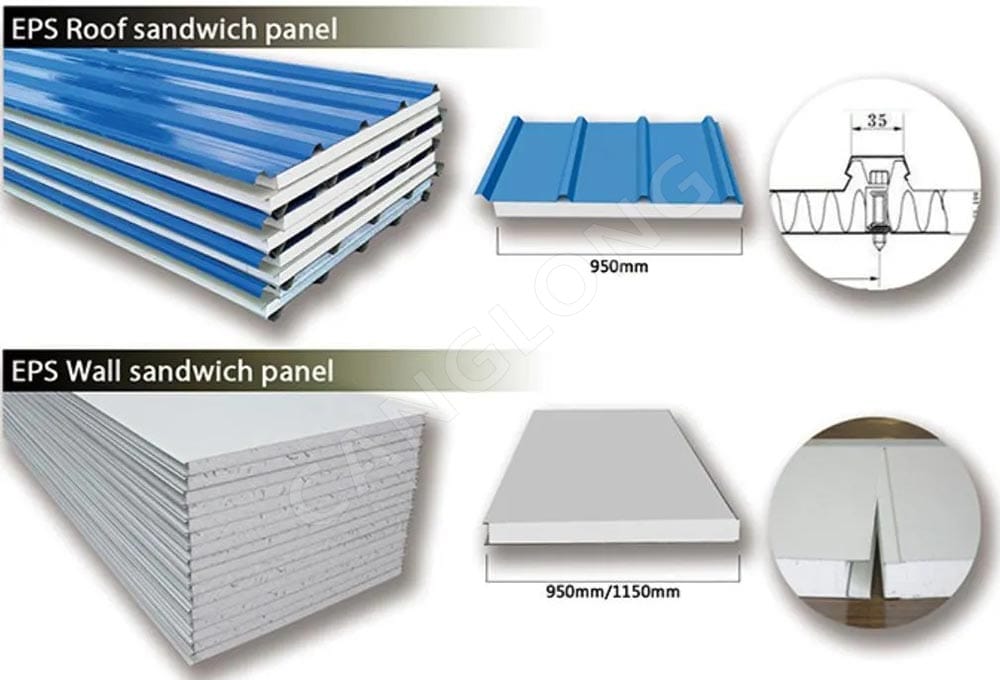
| Name | Wall Panel | Roof Panel | |||||||
| Effective width (mm) | 950/1150 | 950 | |||||||
| Sheet thickness (mm) | 0.2mm to 0.8mm | 0.2mm to 0.8mm | |||||||
| Sheet color | Customized | Customized | |||||||
| Core thickness (mm) | 50 | 75 | 100 | 150 | 200 | 50 | 75 | 100 | 200 |
| Mass (kg/㎡) | 9 | 9.37 | 9.74 | 10.47 | 11.21 | 9.83 | 10.19 | 10.56 | 11.3 |
| R-value (m2.K/W) | 1.22 | 1.82 | 2.43 | 3.66 | 4.88 | 1.22 | 1.82 | 2.43 | 3.66 |
Features of expanded polystyrene panel
Composition:
EPS panels are made from expanded polystyrene beads that are fused together to create a solid, lightweight structure. This process results in a closed-cell foam that is resistant to water absorption.
Thermal Insulation:
EPS panels have a low thermal conductivity, typically ranging from 0.030 to 0.040 W/m·K, making them highly effective for thermal insulation in buildings.
Lightweight:
The low density of EPS makes it easy to handle and install, reducing transportation costs and labor requirements.
Moisture Resistance:
Expanded polystyrene panels are resistant to moisture, which helps prevent mold growth and deterioration in humid environments.
Versatility:
These panels can be manufactured in various sizes and thicknesses, allowing for customization to meet specific project needs.
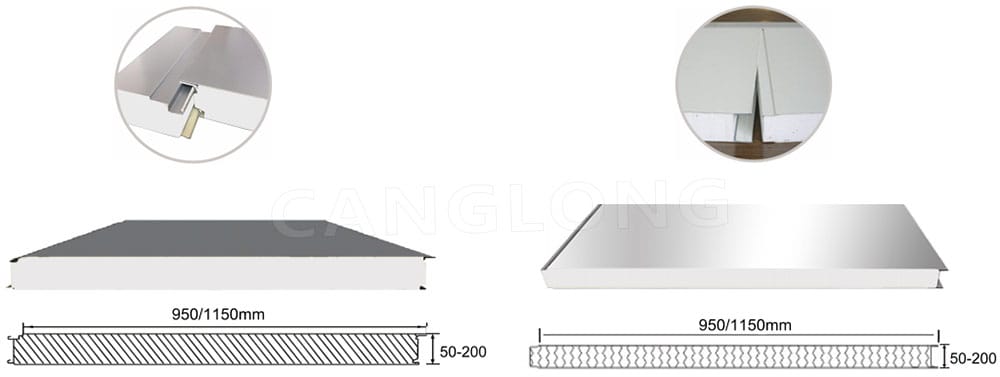
Polystyrene Insulation Sandwich Wall Panel – Span Table
| Non-Cyclonic Reqion A&B | Cyclonic Reqion A&B | ||
| Wind Speed (km/h) | Span (mm) | Wind Spend (km/h) | Span (mm) |
| 118.8 | 5400 | 147.6 | 3600 |
| 147.6 | 4200 | 180 | 3000 |
| 180 | 3600 | ||
Benefits of expanded polystyrene panel
Energy Efficiency:
The superior insulation properties of EPS panels help reduce energy consumption for heating and cooling, resulting in lower utility bills.
Cost-Effective:
EPS panels are often more affordable than other insulation materials, providing a cost-effective solution for thermal insulation.
Environmental Considerations:
Expanded polystyrene is recyclable and can be reused in various applications, contributing to sustainable building practices.
Ease of Installation:
The lightweight nature of EPS sandwich panels allows for quick and easy installation, minimizing labor costs and construction time.
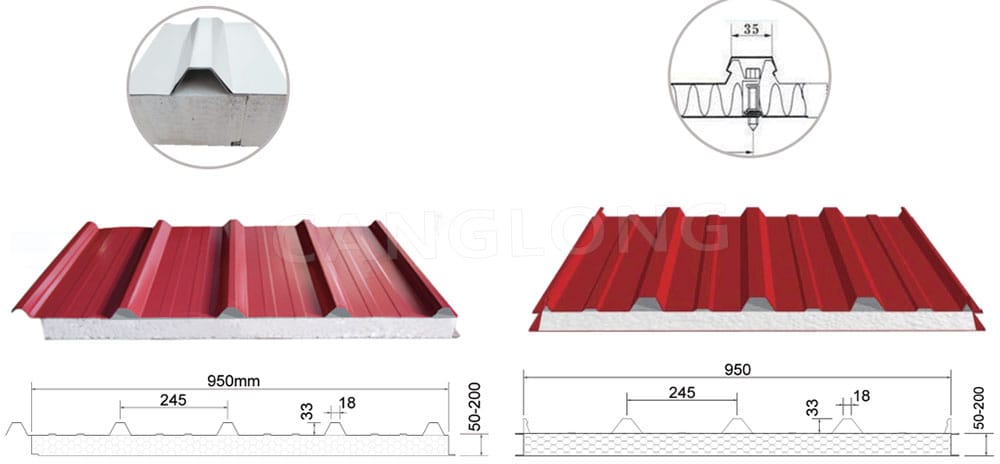
Polystyrene Insulation Sandwich Roof Panel – Span Table
| Thickness (mm) | Singel span(mm) | Multi-span(mm) | ||||||||||||
| 1500 | 2700 | 3900 | 5100 | 6300 | 7500 | 8700 | 1500 | 2700 | 3900 | 5100 | 6300 | 7500 | 8700 | |
| 50 | 5.16 | 2.35 | 1.28 | – | – | – | – | 4.15 | 2.07 | 1.17 | – | – | – | – |
| 75 | 7.70 | 3.74 | 2.00 | 1.21 | – | – | – | 5.9 | 2.91 | 1.72 | 1.11 | – | – | – |
| 100 | 9.41 | 4.63 | 2.55 | 1.53 | 1.04 | 0.76 | – | 7.61 | 4 | 2.41 | 1.58 | 1.1 | – | – |
| 125 | 10.98 | 5.55 | 3.11 | 1.86 | 1.25 | 0.92 | – | 7.74 | 4.25 | 2.95 | 1.98 | 1.4 | 1.03 | – |
| 150 | 13.26 | 6.78 | 3.67 | 2.19 | 1.47 | 1.07 | 0.82 | 7.74 | 4.35 | 3.04 | 2.35 | 1.77 | 1.31 | – |
Applications of expanded polystyrene panel
Building Insulation:
EPS panels are commonly used in walls, roofs, and floors to provide thermal insulation in residential and commercial buildings.
Cold Storage Facilities:
Ideal for refrigerated warehouses and cold storage applications, expanded polystyrene panels help maintain consistent temperatures.
Packaging:
Due to their cushioning properties, EPS is widely used in packaging fragile items, providing protection during transport.
Structural Applications:
EPS panels can be used in lightweight construction techniques, such as insulated concrete forms (ICFs) and structural insulated panels (SIPs).
Green Roof Systems:
EPS is also used in green roof systems, providing insulation while supporting vegetation.
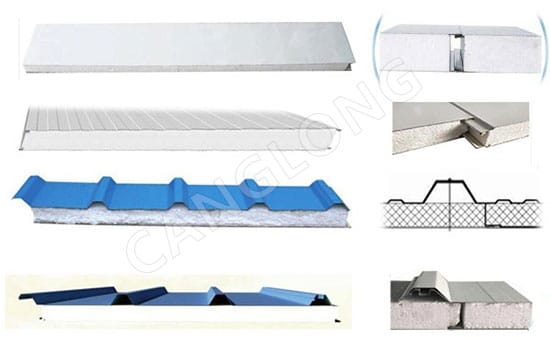
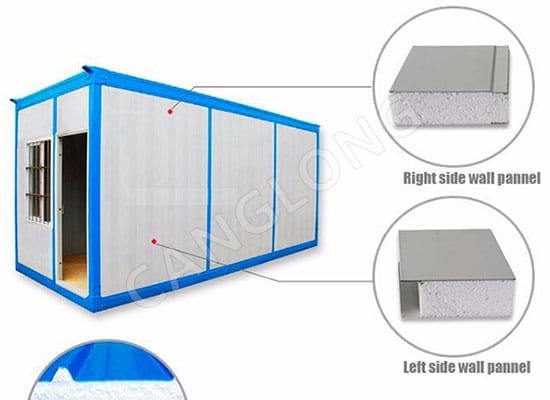
Installation Considerations
- Surface Preparation: Ensure that surfaces are clean and dry before installation to achieve proper adhesion and insulation performance.
- Sealing Joints: Properly seal joints between panels to minimize air leaks and maximize insulation effectiveness. Use compatible adhesives or sealants.
- Handling and Storage: Handle expanded polystyrene panels carefully to avoid damage. Store them in a dry location, protected from direct sunlight and moisture.
- Compliance: Ensure that the installation meets local building codes and standards for insulation and fire safety.
Sandwich Panel Production Workshop

Sandwich Panel Packing & Shipping
All the products are loaded at the loading site of our factory using crane and forklift by our skilled workers, who will prevent the goods to be damaged. And all the structure components, panels, bolts and sorts of accessories will be well packed with standard package and it is suitable for ocean transport.
Inspection: 50% inline inspection and 100% full final inspection, make sure all output w/o any mistake.
Packing: Per customer's requirements or per product sizes, full protection packing.
Shipping: Per customer's requirements or per container sizes.
Unloading: We package it as a whole and can be easily pulled out at once with a forklift, which is very convenient.

Our Certificates
Our sandwich panel certificates include EU CE certification, BPS certification, and ICC certification.

Application of Sandwich Panels
Usage scenario: Insulated sandwich panels are used as exterior walls and interior partitions, installed vertically or horizontally on single span or multi span structures. Such as industrial buildings, steel frame structures, warehouses and logistics centers, commercial buildings and offices, fire-resistant buildings, agricultural and livestock buildings, sports halls, exhibition halls, factories, garages, hangars, barns, prefabricated houses, cold storage, clean room, etc.

We provide the following RAL color card colors for your reference. For other colors, please compare the Raul color card colors.
Note: The above color card has a slight deviation due to printing reasons, please refer to the actual products.


If you purchase metal sandwich panels from Canglong Group, we will also provide some accessory products, including self tapping nails, rivets, waterproof caps, polyurethane glass glue, mouth and corner accessories, outer ridge tiles, waterproof eaves, external and internal corners, eaves edging, plugs, door and window edging, purified aluminum profiles, etc.




High-quality Raw Materials
We strictly select high-quality suppliers. All color steel coils and core materials are from China top 500 companies and have undergone strict quality inspections to ensure the basic quality of the products.
-

Advanced Production Equipment
The factory is equipped with advanced production equipment, including automated production lines, cNc cutting machines and high-precision pressing equipment, to ensure that the production process of each color steel sandwich panel is accurate and stable.
-

Mature Supply Solutions
One-stop supply of all accessories for sandwich panel installation, standardized packaging process, to avoid friction or damage of sandwich panels on the road, easy for customers to unload, saving time and money for customers.
-

Q1: What are the main applications of polyurethane sandwich panels?
A: Polyurethane sandwich panels are commonly used for insulation and construction in various building types, including residential, commercial, industrial, and agricultural structures. They are suitable for walls, roofs, ceilings, and floors.
Q2: What are the advantages of polyurethane sandwich panels?
A: Polyurethane sandwich panels offer excellent thermal insulation properties, lightweight construction, high strength-to-weight ratio, versatility, weather resistance, fire resistance (with appropriate treatments), aesthetic appeal, and cost-effectiveness.
Q3: How do polyurethane sandwich panels contribute to energy efficiency?
A: Polyurethane sandwich panels provide effective thermal insulation, reducing heat transfer through walls and roofs. This helps maintain comfortable indoor temperatures and reduces the energy required for heating and cooling, thus contributing to energy efficiency and lower utility bills.
Q4: Are polyurethane sandwich panels environmentally friendly?
A: Polyurethane sandwich panels can be environmentally friendly when produced using sustainable manufacturing practices and materials. Additionally, their energy-saving properties contribute to overall environmental sustainability by reducing energy consumption and greenhouse gas emissions.
Q5: How durable are polyurethane sandwich panels?
A: Polyurethane sandwich panels are known for their durability and resistance to various environmental factors, including weather, moisture, and corrosion. Proper installation and maintenance can further enhance their longevity.
Q6: Are polyurethane sandwich panels easy to install?
A: Yes, polyurethane sandwich panels are relatively easy to install compared to traditional building materials. Their lightweight nature and standardized dimensions facilitate quick and efficient installation, resulting in reduced construction time and labor costs.
Q7: Can polyurethane sandwich panels be customized?
A: Yes, polyurethane sandwich panels can be customized to meet specific design requirements, including color, finish, thickness, and profile. Customization options allow architects and builders to achieve desired aesthetics and performance characteristics for their projects.
Q8: How do I maintain polyurethane sandwich panels?
A: Maintenance requirements for polyurethane sandwich panels are minimal. Regular cleaning with mild detergent and water, inspection for any damage or deterioration, and prompt repair of any issues are recommended to ensure optimal performance and longevity.
Product Features
The metal sandwich panels produced by Canglong are insulated, fire-resistant, environmentally friendly, earthquake resistant, and durable.
